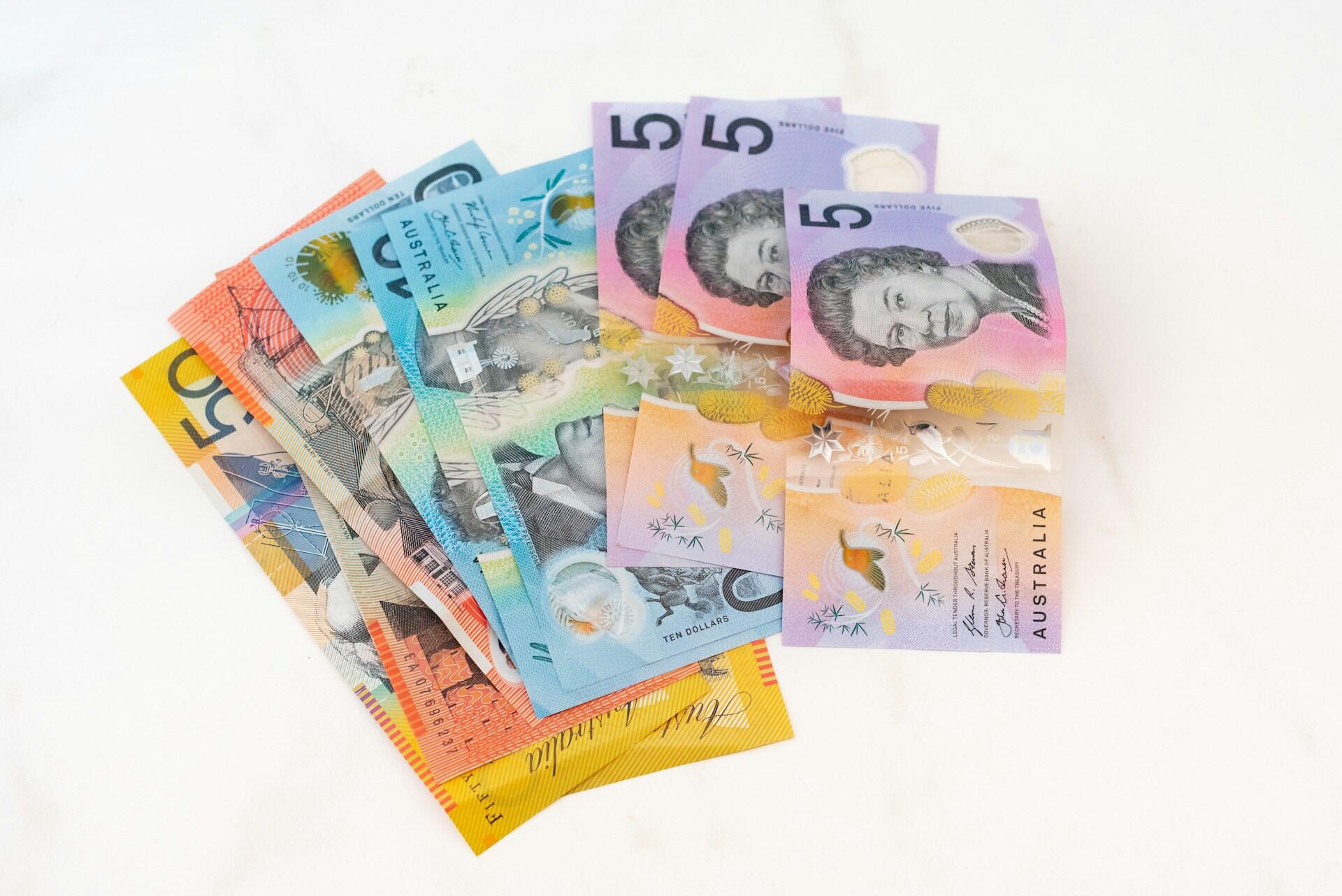As the world rushes towards embracing digital currencies, many wonder what the point of paper bills is. In Australia, we're all in on the race to a cashless society, too. So, it's worth slowing down a bit and studying the notes we call money. They are mini works of art, and the people on Australian money are some of our country's most important.
| 💲Denomination | 😗Obverse (face, front) | 🔀Reverse (back) |
|---|---|---|
| $5 | Queen Elizabeth II | Parliament House |
| $10 | Banjo Paterson | Dame Mary Gilmore |
| $20 | Mary Reiby | Paster John Flynn |
| $50 | David Unaipon | Edith Cowan |
| $100 | Dame Nellie Melba | Sir John Monash |

$5: Her Royal Highness Queen Elizabeth II
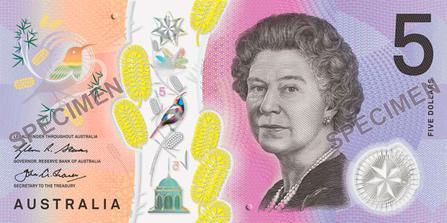
We needn't say much about the world's longest-serving female monarch, or give reasons why she appears on Australian currency. Until her passing, Queen Elizabeth II was Australia's head of state.
Perhaps the biggest question on everyone's mind is who will feature on the next series, now that our dear Queen has passed. Many are begging the internet for an answer to their "new Australian money king Charles" search. Here's what you need to know:
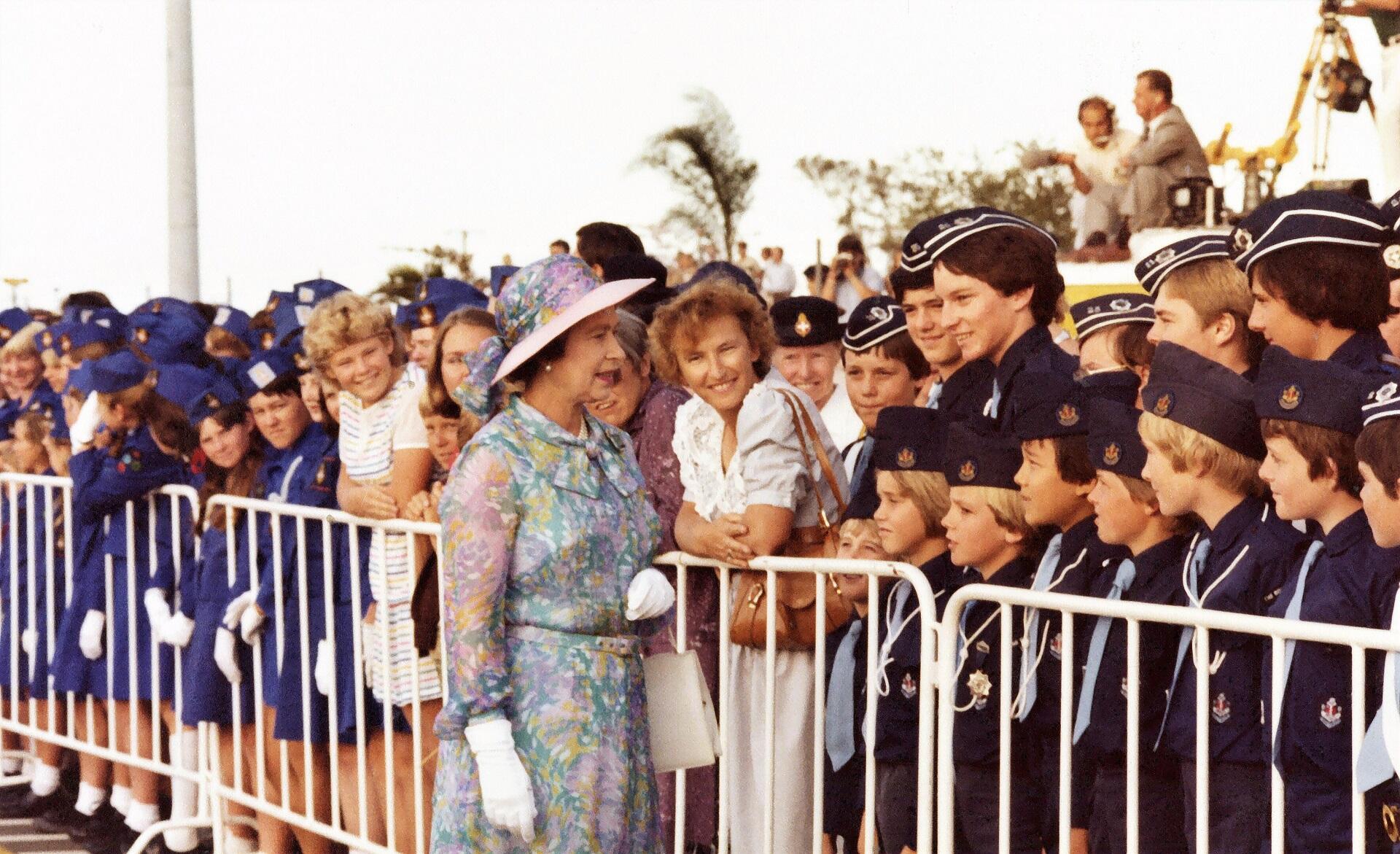
According to Treasury Secretary Jim Chalmers, King Charles III will not feature on future $5 bills.
He stated in 2023 that future printings will feature an Indigenous design to better reflect the Australian heritage, country and culture. His words make it clear that the new design likely won't include any noteworthy Indigenous Australians, though. The monarch will still be on Australian coins.
The Right Words
Before going on, we should know the words used to describe the front and the back of banknotes. The terms 'front' and 'back' are usually enough to describe them in casual conversation. However, they are officially labelled using these words.
Obverse
- The side that has the main design.
- Casually called the front of the bill.
Reverse
- The opposite of the obverse.
- Casually called the back of the bill.
You will find these words throughout the rest of this article. For now, we have to point out one remarkable feature of the Australian $5 bill.
This is the only Australian banknote that does not have a picture of another famous person on the other side.
In fact, this bill is in line with most of the world's currencies, which feature only one famous person. The reverse typically shows some sort of landmark, either natural or man-made. So, when asking 'Who is on Australian bank notes?', you should make it clear which side of the banknote you're curious about. Unless you're talking about the $5 note.
$10: Banjo Paterson
We celebrate this Australian author and bush poet as one of the greatest writers of our country's colonial period. His portrait graces the obverse of the Australian $10 note.
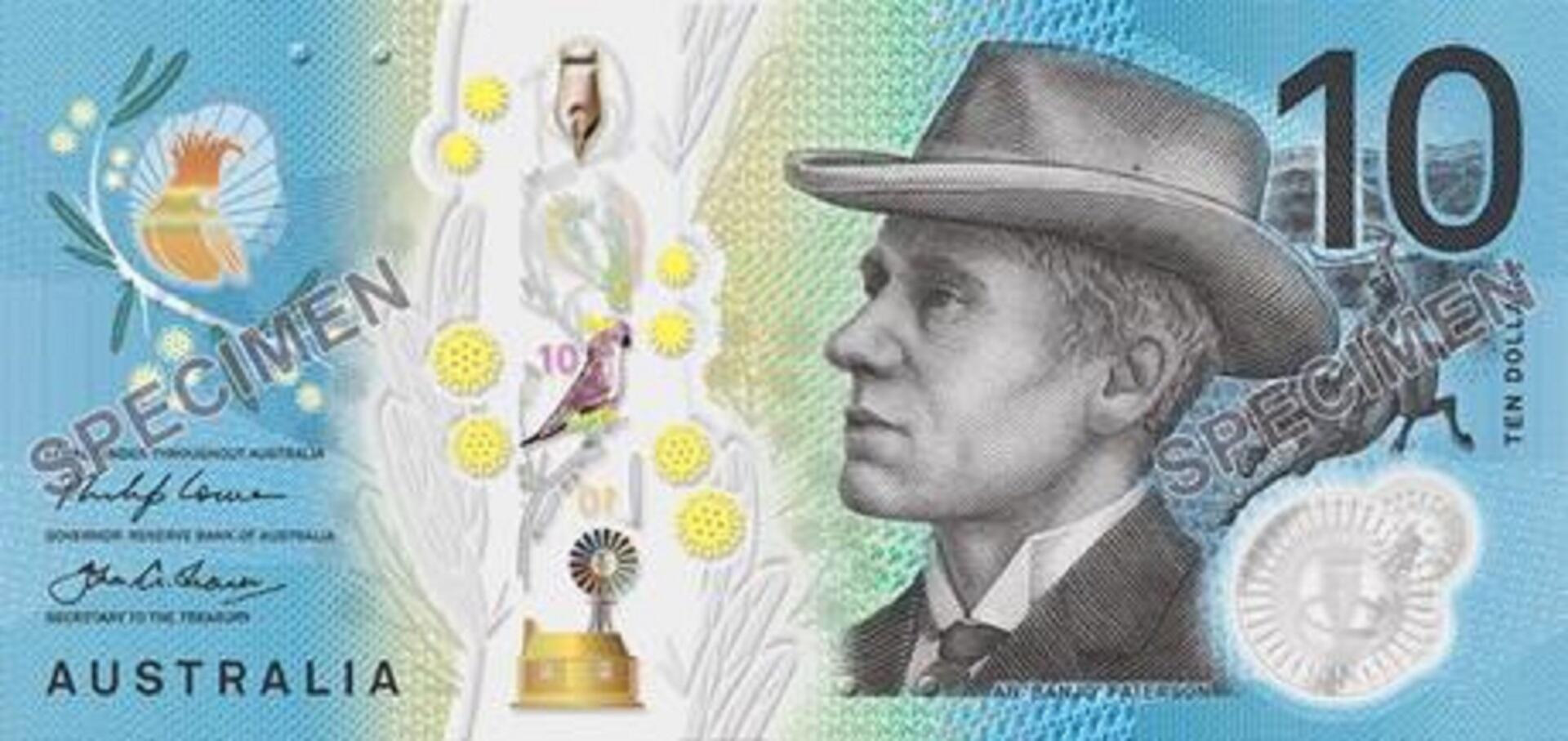
Andrew Barton Paterson was born around Orange, New South Wales (NSW), in 1864. He started his professional life as a lawyer, writing poetry in his spare time.
Banjo Paterson published his poems in a magazine called The Bulletin, which offered a weekly collection of political musings, cartoons, essays, and stories.
He was already famous for his poetry by the time the Second Boer War broke out. He sailed to South Africa to cover events there, turning himself into a war correspondent. There, he worked alongside other war writers, including Winston Churchill. Later, he reported on the Boxer Rebellion in China.
Banjo was the name of his favourite horse and the pen name he published his first poems.
When the First World War broke out, Banjo was set to reprise his role as a war correspondent, but no newspaper offered him the job. Instead, he became an ambulance driver for the Australian Voluntary Hospital in France. He returned to Australia in 1919, after suffering a war injury, and continued his writing career.
Dame Mary Gilmore
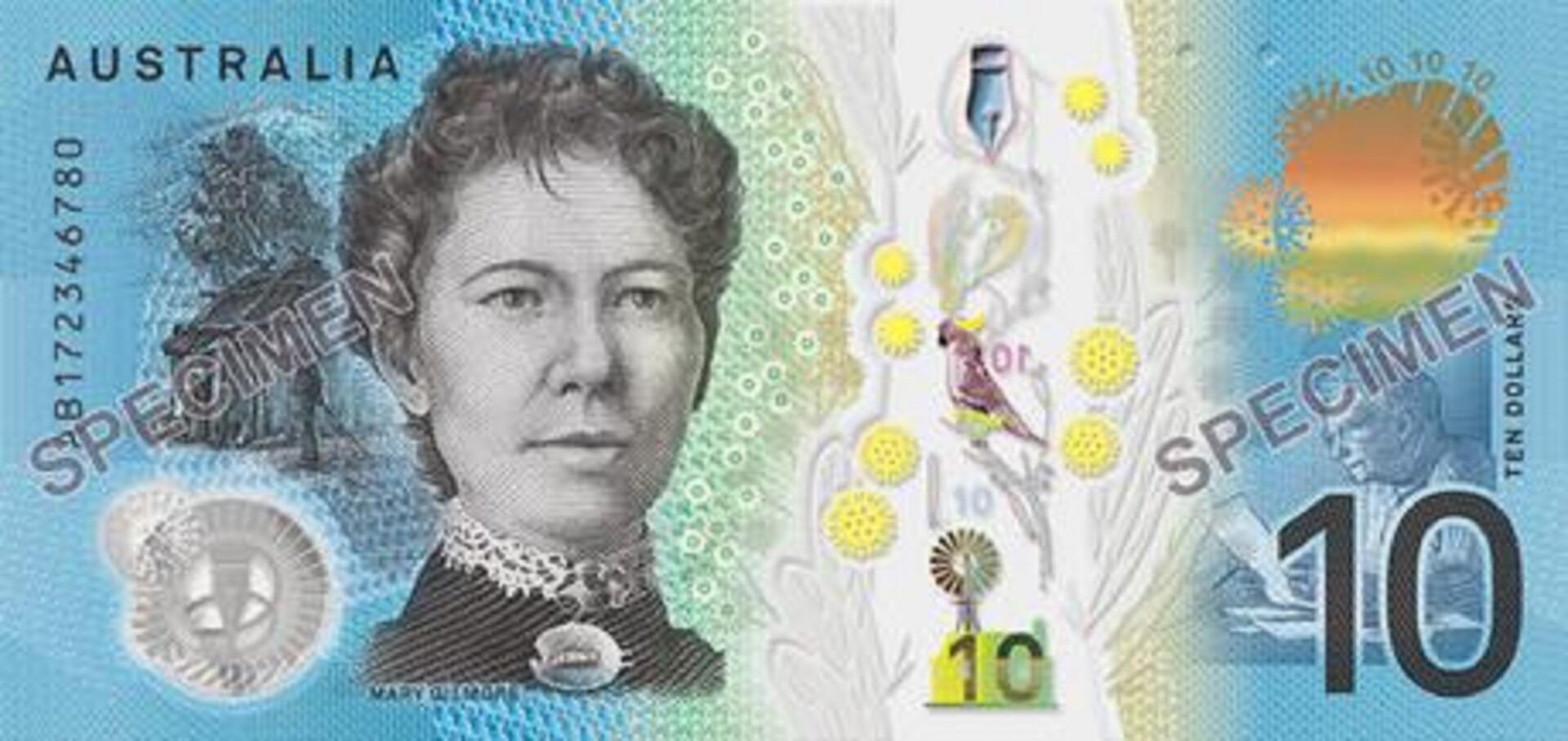
This note's reverse side features Mary Gilmore's picture. She wrote three books about life in Australia, publishing more than 20 poetry collections.
Mary Jean Cameron was born in NSW in 1865. She had her heart set on being a teacher, a career she pursued after leaving school. However, Mary held firm political views and an urge to express her ideas. She moved to Sydney when she was 25 years old, ready to exercise both her passions.
Like Banjo Paterson, she published her early poems in The Bulletin. Those poems marked her as a champion of the working class and the oppressed, and a radical political writer.
In 1956, the Australian Council of Trade Unions established the Mary Gilmore Award, a literary prize, in her honour.

$20: Mary Reiby
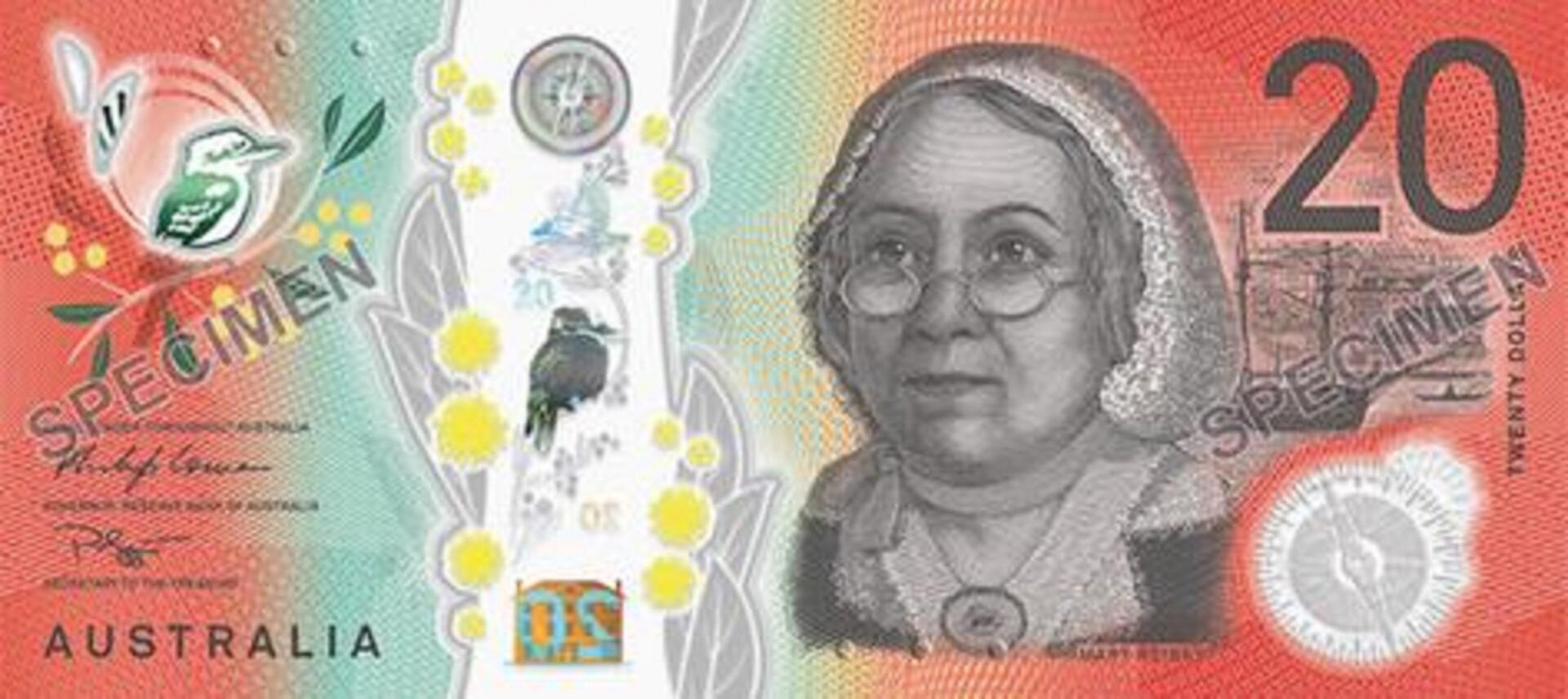
The remarkable Mary Reiby first came to the authorities' attention while dressed as a boy in Lancashire, England, where she was born.
Her parents died when she was young, leaving her in her grandmother's care. She was arrested at 17 years old for trying to steal a horse, and sent to Australia aboard a convict ship. Two years into her sentence, she married Thomas Reiby. She and her husband, an enterprising lad, built a successful cargo business - and a large family.
Her husband died 16 years into their marriage-partnership. By then, he and Mary had built a vast enterprise. Mary, with 7 children to care for, had no intention of losing everything. Instead, she expanded her business, bought more property, and ventured into banking.
Mary died in 1855, in a house that she built for herself. If you take a walk through Pioneer Memorial Park, you will find a memorial for Mary Reiby among other iconic Australian personalities.
Reverend John Flynn
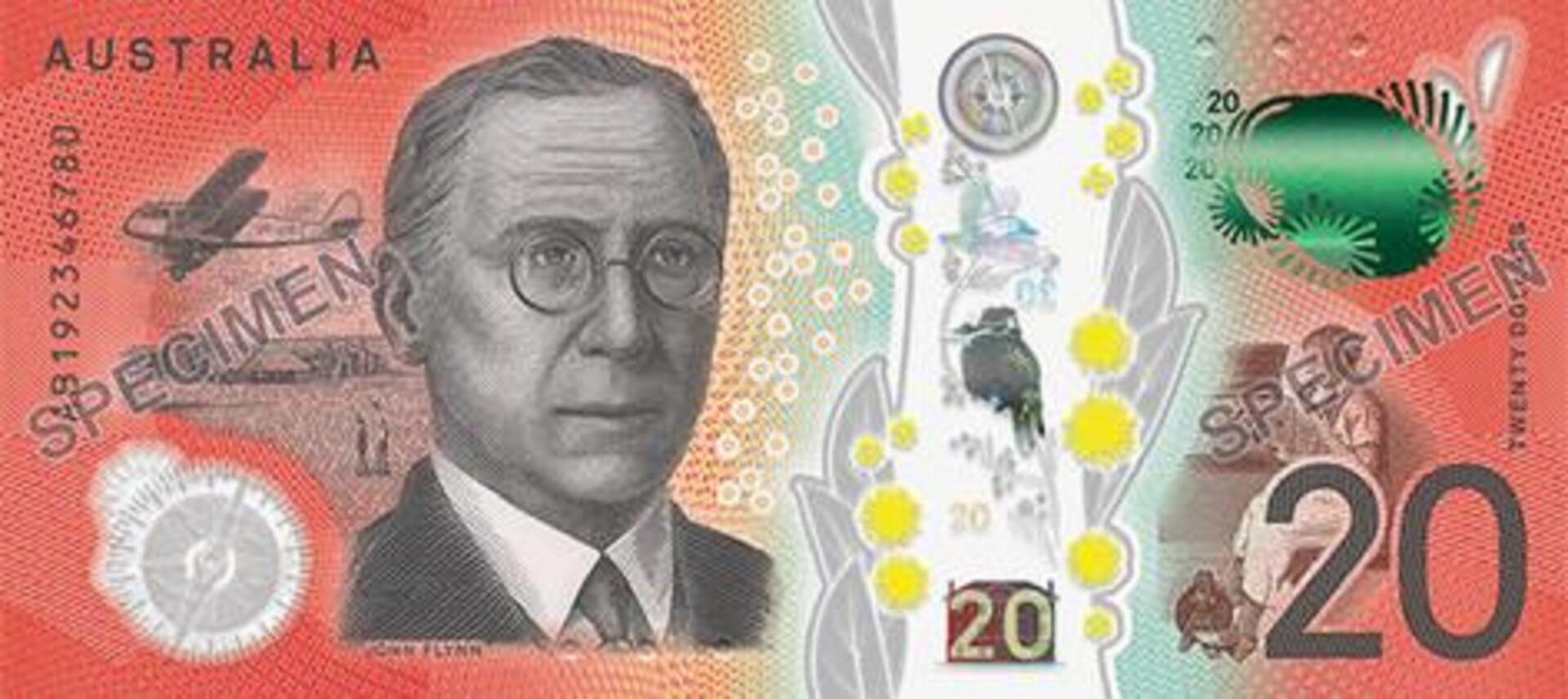
Born into a poor family, John Flynn lost his mother at his birth. He was raised by relatives until he was five years old, when he rejoined his family.
He benefited from Australia's public school system but could not afford university fees, so he worked his way through higher education. Always concerned for the welfare of others, John wrote his first book, The Bushman's Companion. It was a how-to manual for surviving in remote locations. The missions he undertook after being ordained took him into Australia's inland, where he discovered how hard it is to minister to such a scattered flock.
Among all his deeds, founding the world's first air ambulance system is his greatest accomplishment.
$50: David Unaipon
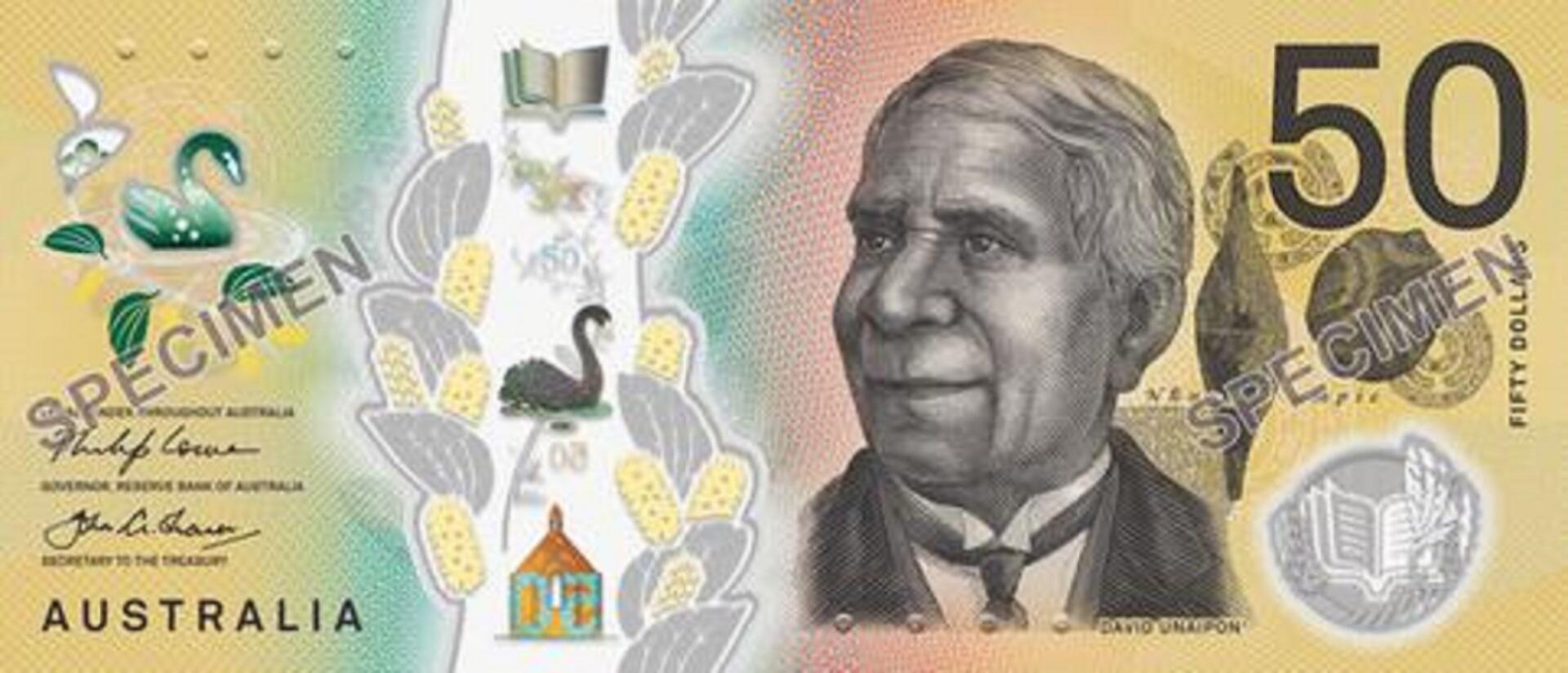
David Unaipon (David Ngunaitponi) was a keen inventor, author and preacher, but even these remarkable accomplishments are not the most he did for Australian society. This is how the former secretary described him:
I only wish the majority of white boys were as bright, intelligent, well-instructed and well-mannered ...
Aborigines' Friends' Association representative
David's greatest work was breaking barriers for Indigenous Peoples of Australia, and for proving stereotypes wrong. That didn't stop others from capitalising on the devices David invented. For instance, David invented the mechanisms powering the sheep shears commonly used today. Outside of a mention of his involvement, he received neither recognition nor compensation for his idea.
David was Australia's first published Aboriginal author.
His writings made Aboriginal culture and history accessible to all.
Celebrating David's life and accomplishments by putting his face on the Australian $50 bill seems like not enough recognition. After all, he is - or should be the ultimate famous Australian from our history.
Edith Cowan
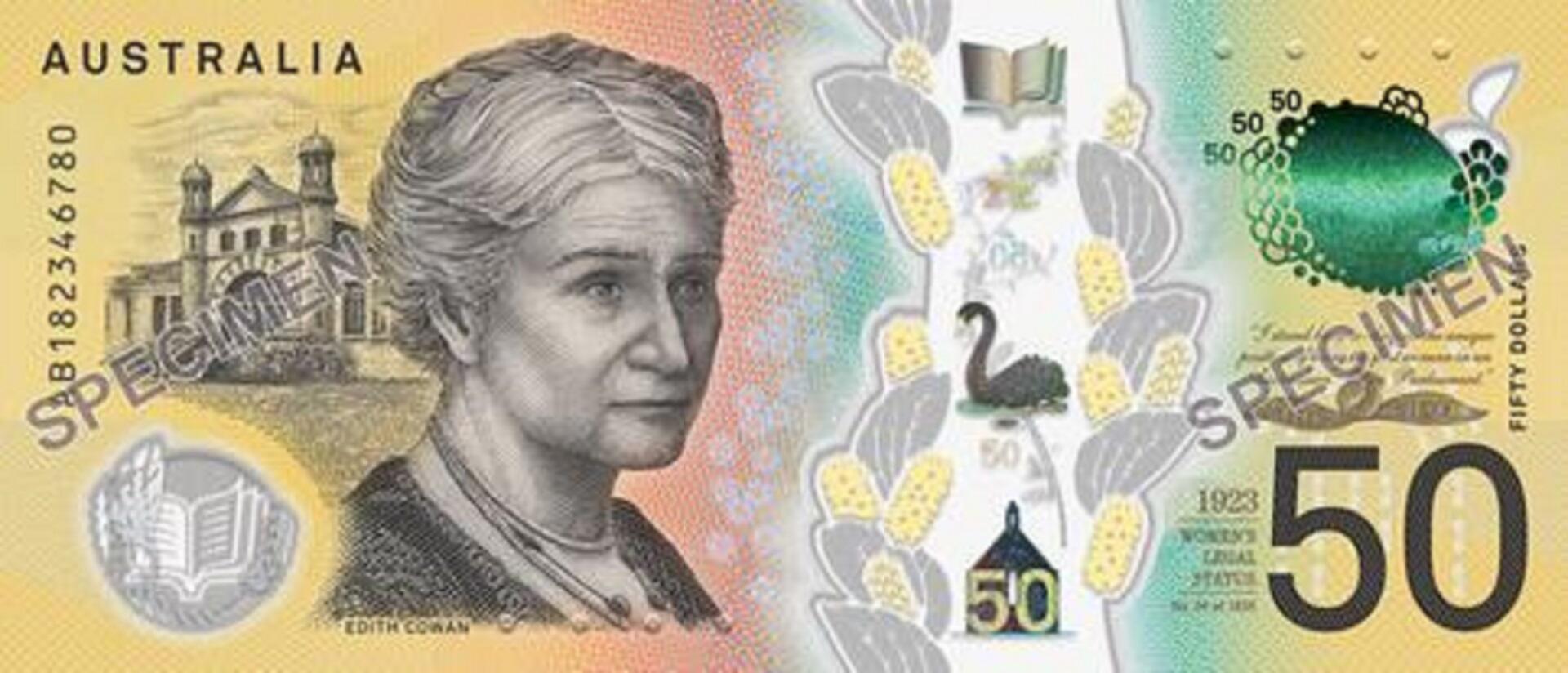
The $50 bill's reverse features Edith Cowan, a social reformer who agitated for women's and children's rights.
As so many women did in those days, Edith Cowan's mother died in childbirth when Edith was 7 years old. Unable to care for her at home, her father sent her to boarding school in Perth. Her world crumbled when her father was convicted of shooting his second wife to death.
Edith's early history tells us why she fought for women's and children's safety and access to social services. She was a founding member of the Karrakatta Club, an organisation that helps empower women.
$100: Dame Nellie Melba
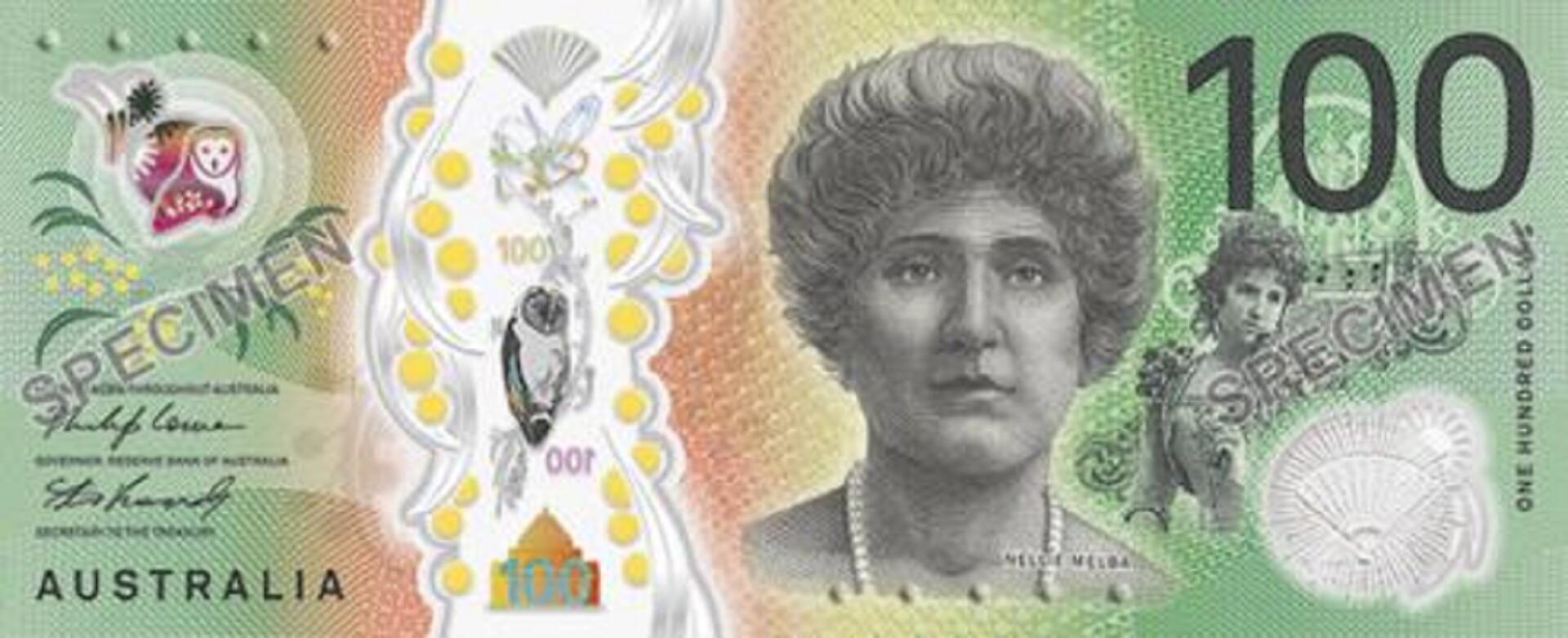
Nellie Melba was the stage name for Australia's most famous opera singer. She was renowned the world over for her coloratura soprano, becoming the first Australian to gain international fame as a classical music performer.
Dame Melba initially resented the treatment she suffered at Covent Gardens, vowing never to return there. Still, Covent Gardens became the opera house she returned to time and again, making her one of the Australian women to make history abroad.
Sir John Monash
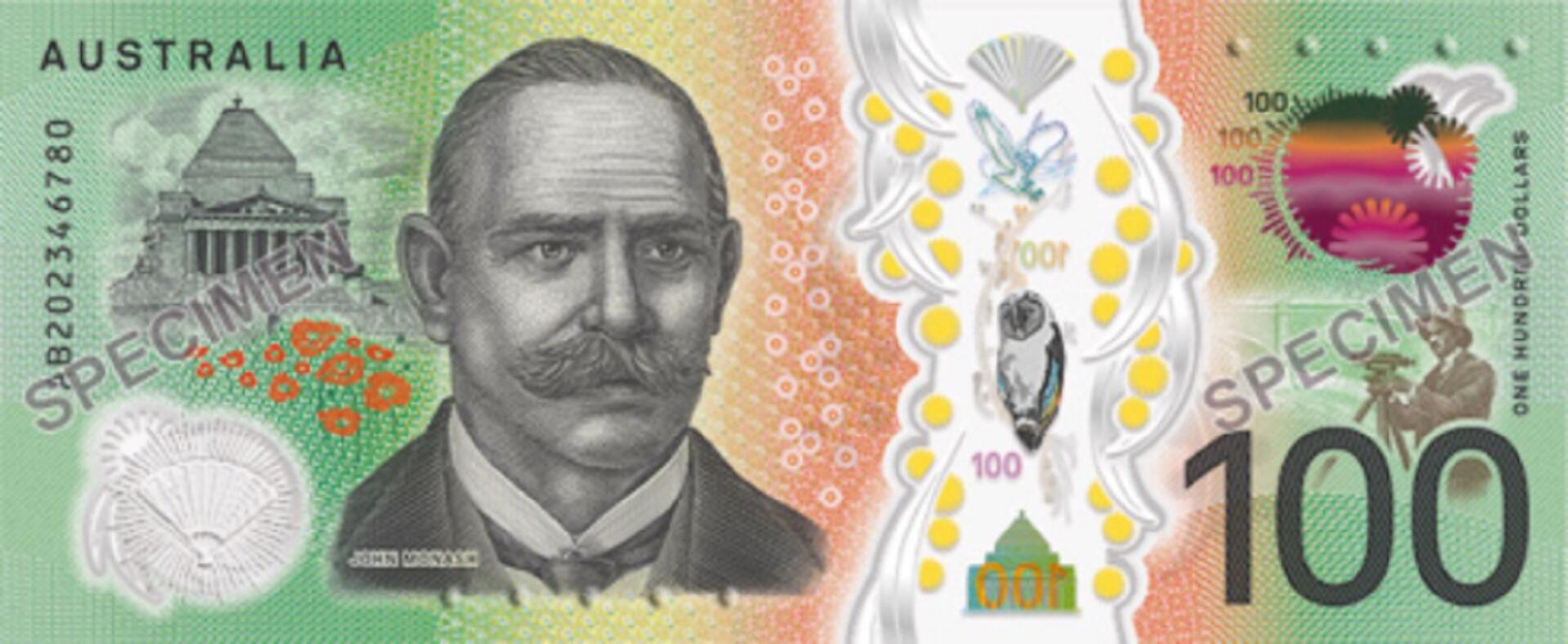
Why is Sir John Monash on the $100 note? The simplest answer to that question is: because he represented Australia in wars abroad.
He commanded the troops that fought in the Gallipoli Campaign. Before the war ended, he became the commander of the Australian Corps, the largest military grouping on the Western Front.
Sir Monash never was among the Australian politicians of note, but the roles he played were indeed political. Besides, he worked closely with politicians, especially towards the end of his career.
Summarise with AI:

